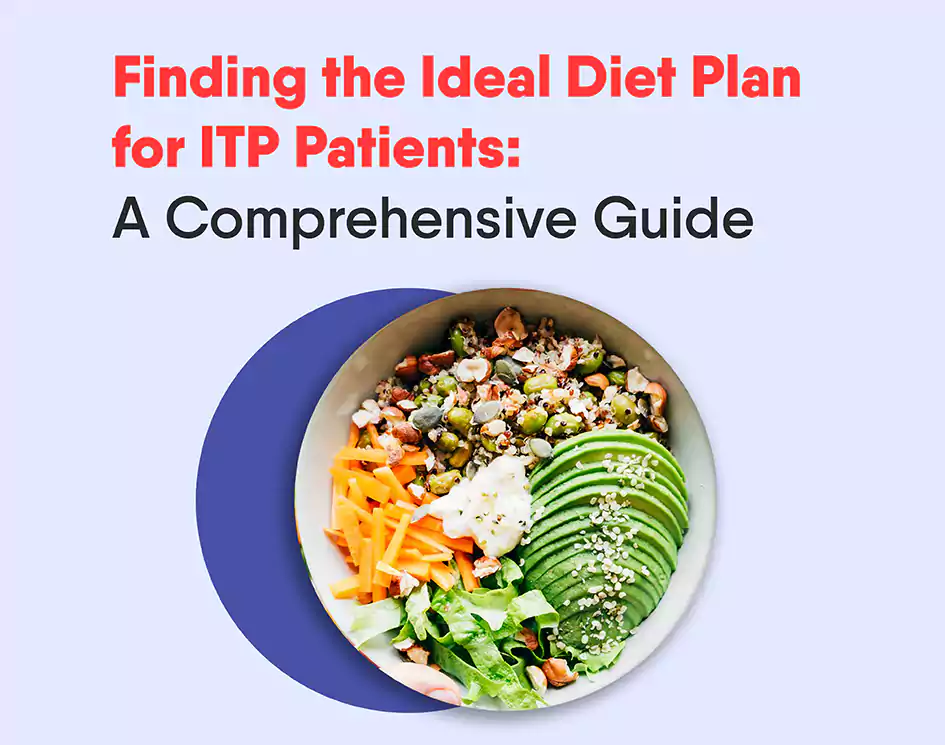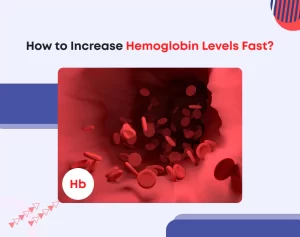
Finding the Ideal Diet Plan for ITP Patients: A Comprehensive Guide
Idiopathic Thrombocytopenic Purpura (ITP) is a complex autoimmune disorder characterized by low platelet counts, leading to an increased risk of bleeding and bruising. While medical interventions play a vital role in managing ITP, adopting a well-balanced diet can significantly support the overall well-being of patients.
In this article, we will explore the best diet plan for ITP patients, focusing on essential nutrients, dietary modifications, and lifestyle factors that can positively impact their health.
Understanding the Importance of Nutrition in ITP Management
Maintaining a nutritious diet is crucial for ITP patients as it helps optimize overall health, supports immune function, aids in preventing infections, and assists in the production of healthy platelets.
While there is no specific diet to cure ITP, certain dietary choices can positively influence platelet production and enhance blood clotting abilities.
Key Nutrients for ITP Patients
Iron: Iron-rich foods like lean meats, poultry, fish, fortified cereals, legumes, and leafy greens can help combat anaemia and promote healthy blood cell production.
Vitamin C: Foods like citrus fruits, berries, kiwi, tomatoes, and bell peppers are rich in vitamin C, which aids in iron absorption and collagen synthesis.
Vitamin K: Leafy greens (kale, spinach, broccoli), cabbage, Brussels sprouts, and fermented foods (natto) contain vitamin K, which supports blood clotting.
Omega-3 Fatty Acids: Cold-water fish (salmon, mackerel, sardines), flaxseeds, chia seeds, and walnuts are excellent sources of omega-3 fatty acids, which can reduce inflammation and improve platelet function.
Antioxidants: Brightly coloured fruits and vegetables such as berries, cherries, spinach, kale, and beets contain antioxidants that support overall health and may help manage ITP symptoms.
Dietary Modifications for ITP Patients
Plant-Based Diet: A predominantly plant-based diet, including a variety of fruits, vegetables, whole grains, legumes, and nuts, can provide essential nutrients and antioxidants while promoting overall health and reducing inflammation.
Avoid Processed Foods: Processed foods are often high in unhealthy fats, sodium, and additives. Opt for whole, unprocessed foods whenever possible.
Limit Sugar Intake: Excessive sugar consumption can lead to inflammation and negatively impact the immune system. Choose natural sweeteners like honey or opt for fruits to satisfy your sweet tooth.
Hydration: Staying adequately hydrated is essential for optimal blood circulation and overall health. Drink plenty of water throughout the day.
Moderate Alcohol Consumption: Alcohol can interfere with platelet function and increase the risk of bleeding. Limit alcohol intake or consult a healthcare professional for guidance.
Potential Allergens: Some ITP patients may have underlying food allergies or sensitivities that can worsen symptoms. Identify and avoid potential trigger foods.
Consult a Registered Dietitian: Working with a registered dietitian who specializes in autoimmune conditions can provide personalized guidance, ensuring you meet your nutritional needs.
Lifestyle Factors for ITP Management
In addition to a balanced diet, certain lifestyle factors can further support ITP management:
Stress Management: Stress can exacerbate ITP symptoms. Engage in relaxation techniques, such as meditation, deep breathing exercises, or yoga.
Regular Exercise: Moderate exercise, as approved by your healthcare professional, can enhance blood circulation, boost immunity, and improve overall well-being.
Adequate Sleep: Prioritize sufficient sleep to allow your body to rest, recover, and maintain a healthy immune system.
Medication and Treatment Adherence: Follow your prescribed treatment plan and medication schedule as advised by your healthcare provider.
Supportive Community: Connect with support groups or organizations that specialize in ITP to gain knowledge, share experiences, and find emotional support.
Foods to avoid
When it comes to managing immune thrombocytopenia (ITP) and undergoing steroid treatment, it is important for patients to pay attention to their diet. While there are no specific foods that have been proven to directly cause or worsen ITP, certain dietary choices can help support overall health and potentially improve the effectiveness of treatment. Here are some foods to avoid or limit while on steroids for ITP:
- Sodium-rich foods: Steroids can cause fluid retention and increase blood pressure. To manage these side effects, it is advisable to limit sodium intake. Avoid or reduce the consumption of processed foods, canned soups, fast food, and salty snacks.
- Sugar and refined carbohydrates: High-sugar foods and refined carbohydrates like white bread, pasta, and pastries can cause blood sugar spikes and promote inflammation. Instead, opt for whole grains, fruits, and vegetables that provide essential nutrients and fiber.
- Trans fats and saturated fats: These unhealthy fats can increase inflammation and contribute to heart disease. Avoid fried foods, processed meats, full-fat dairy products, and commercially baked goods. Opt for healthier fats found in avocados, nuts, seeds, and olive oil.
- Alcohol: Steroids can already put strain on the liver, and alcohol consumption can further exacerbate this. Additionally, alcohol can interfere with platelet function and increase the risk of bleeding. It is best to avoid alcohol altogether or consume it in moderation.
- Raw or undercooked foods: ITP patients may be more susceptible to infections, so it is important to minimize the risk of foodborne illnesses. Avoid raw or undercooked meats, eggs, seafood, and unpasteurized dairy products. Ensure that all foods are properly cooked and hygienically handled.
- Caffeine: While there is no direct evidence linking caffeine to ITP, it can potentially exacerbate symptoms such as anxiety and insomnia. It may also interfere with the absorption of certain medications. Limit your caffeine intake by avoiding or reducing coffee, energy drinks, and caffeinated sodas.
- Acidic and spicy foods: Some individuals with ITP may experience gastrointestinal discomfort, such as acid reflux or stomach ulcers. Acidic and spicy foods can aggravate these symptoms. Limit your intake of citrus fruits, tomatoes, spicy condiments, and acidic beverages like citrus juices and sodas.
Remember, it is crucial to consult with a healthcare professional or a registered dietitian before making any significant dietary changes. They can provide personalized advice based on your specific condition and treatment plan. A balanced diet that includes plenty of fruits, vegetables, lean proteins, and whole grains is generally recommended for overall health and well-being.
Bottomline
While there is no one-size-fits-all diet plan for ITP patients, adopting a balanced diet rich in essential nutrients can complement medical interventions and promote overall well-being. Incorporating iron, vitamin C, vitamin K, omega-3 fatty acids, and antioxidants can help support platelet production, reduce inflammation, and enhance blood clotting abilities.
Additionally, making dietary modifications, managing stress, staying physically active, getting adequate sleep, and seeking support from healthcare professionals and fellow ITP patients can further contribute to the management of this complex autoimmune disorder. If you’re looking out for the Best hematologist doctor in India, consult us today to tailor a diet plan that best suits your individual needs.






